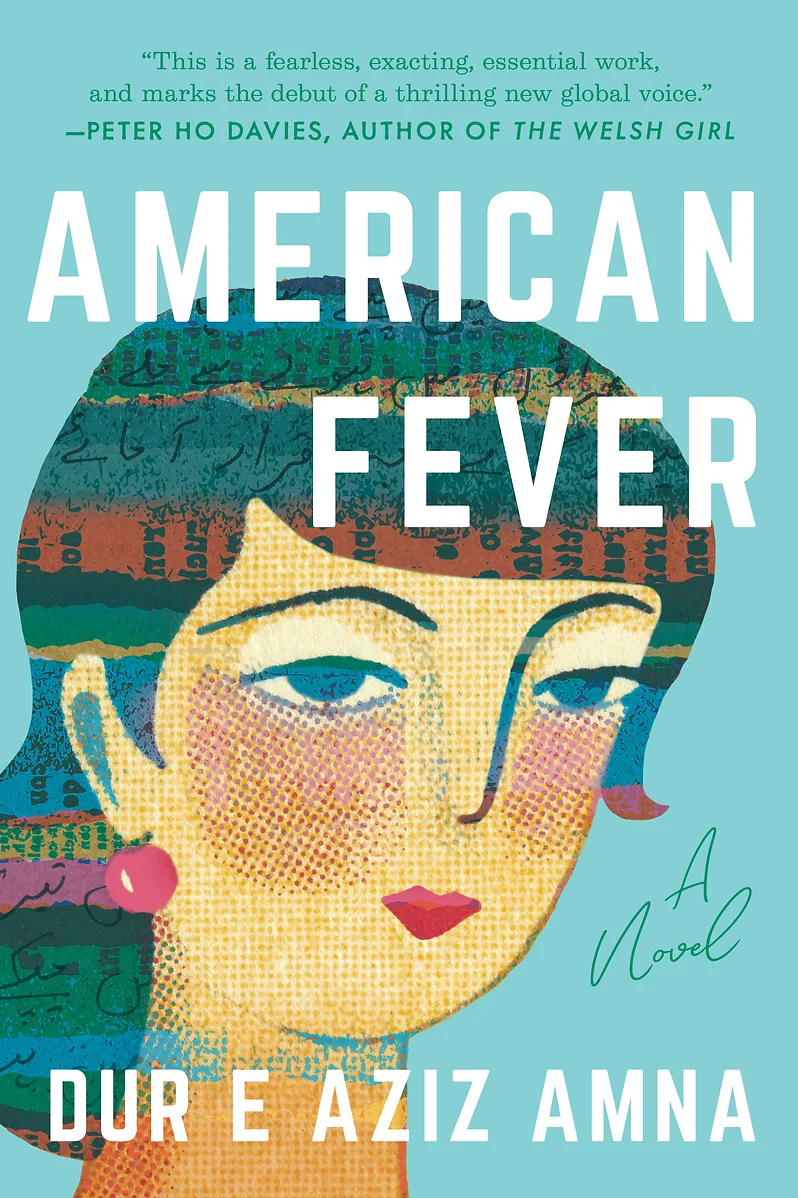All my life, I’ve been known as the girl from everywhere. The evidence of this lies in my upbringing: I was born in Riyadh and have lived in Toronto, Dubai, Lahore, Boston (for a hot minute), and Memphis. I’m proud of this everywhere-ness of mine—it’s a distinguishing trait and it’s made me adaptable to change. But what I don’t talk about is the longing that comes with it. The longing for a place to rest. To settle in and become a long-term local, become that person who has a usual order at the neighborhood café. To have a place to call home.
It took most of my twenties and now my thirties to realize that home is what you take with you. It doesn’t have to be a tangible, immovable place. Home is the you-ness of you. It’s the legacies you carry in your bones and the familial habits you wish you could run away from. Dur e Aziz Amna’s debut novel American Fever delivers this message through immaculate prose, satisfyingly contradictory characters, and a story arc that is un-put-downable. Reading her novel felt like looking into a mirror that revealed new, unseen details about myself. I was thrilled to talk to her about American Fever, which you can order through her website. Happy reading!
~Basmah Sakrani, Radicle Interviewer
Basmah Sakrani: We’ll start by talking about American Fever a bit. I know your own personal experience sparked the seed of that novel, but can you tell us about the process it took from the story being an idea to it becoming a highly-lauded debut?
Dur e Aziz Amna: I started the novel in 2018. By then, I had been out of college three years, years in which I worked responsible day jobs for visa purposes and tried, desperately, to convince myself that I was cut out for corporate America. I was writing on the side and weekends, but I knew that if this was a life I wanted to pursue more actively, I would have to commit to a longer project. At the same time, the memories of an exchange year [abroad] that I had done back in 2008 kept coming back to me. I decided to use that experience as the seed for the novel.
Basmah Sakrani: In botany, the radicle is the primary root, the first organ to appear when a seed germinates. It grows downward into the soil, anchoring the seedling, as secondary roots grow laterally. What do you consider to be the radicle of your writing career?
Dur e Aziz Amna: I love this metaphor. I’d be surprised by any writer who doesn’t say that their radicle, as you call it, was being an avid reader. I read voraciously, desperately, hungrily when I was a child.
Basmah Sakrani: I’d love to know, did you have a favorite book as a kid? Or do you recall that one book which, after reading, you were like holy sh*t?
Dur e Aziz Amna: I remember one summer when I sat down and inhaled all six of the Charlotte Brontë novels. I know it’s a trope—the Anglophone South Asian obsessed with the Victorians—but I suppose it’s a trope for a reason. I was entranced by what she was doing to the language. I don’t think I can read those books again with the same earnestness, but that summer was life-changing.
Basmah Sakrani: Looking back at your writing radicle, what do you wish you’d known then about your writing career that you know now?
Dur e Aziz Amna: Overall, I wish I had known how much rejection is involved in publishing. I suppose a lot of people talk about that, but you only really believe it when your own work, the work you consider polished and sincere and urgent, is rejected.
Basmah Sakrani: Your writing resume is pretty extensive, from personal essays about food and culture to ruminations on travel to book reviews and anthology contributions about Agha Shahid Ali. How do you divide your writing time and focus across these areas?
Dur e Aziz Amna: I think it has meandered over time. During the years when I was working day jobs, I did a lot of longform journalism, which felt like a continuation of something I’ve done for many years—send in letters to editors, short essays in youth magazines, that kind of thing that trains you to think of an audience for your work. The switch to fiction is very recent. The novel was the first time I wrote fiction.
Basmah Sakrani: American Fever provokes this insight: When a place is familiar, you don’t really consider it. What are the places that are familiar to you and how do you use them to fuel your writing?
Dur e Aziz Amna: An easy answer is Pakistan, but specifically, I mean Rawalpindi and the Potohar region that I grew up in and which feels as familiar to me as the back of my hand. At the same time, I’ve been realizing how little I know of its specific history. With a country as young as Pakistan, so much of the conversation becomes about the national project, so I’ve been trying to use my writing to tap into a more regional geography and culture.
Basmah Sakrani: As another Pakistani writer writing in English, I loved that your novel didn’t italicize words and dialogue in Urdu. Was that an intentional choice on your part?
Dur e Aziz Amna: I’ve been asked this question many times… There isn’t anything groundbreaking about not italicizing. My point is not to be dismissive at all. I simply don’t think this is an important craft or political point.
Basmah Sakrani: Note taken on italicizing, I remembered how much of a thing it was in all my workshops, like something you had to have a POV on. So tell me, what is a craft point you wish you’d be asked more about?
Dur e Aziz Amna: A lot of readers who understand Urdu frequently mention how they feel that something of the original Urdu has made its way into the English, as if they can hear how a dialogue would have sounded in the original. I’d love to talk more about how bilingualism works in my novel, and how it’s something every writer split between languages has to work through.
Basmah Sakrani: Finally, what do you think is the legacy you’re creating with your words? If they are the radicle, what do you hope will sprawl and stem from them?
Dur e Aziz Amna: This is a tough question. The hope is to be widely read and pierce the reader’s heart and mind with insights. Eventually, I also want to pay it forward and help other writers, particularly from Pakistan, bring their work forward.
Read Dur e Aziz Amna’s essay, “Your Tongue is Still Yours,” winner of the 2019 Bodley Head/FT Essay Prize.






